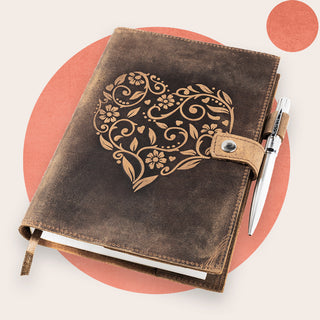Are you looking to rehydrate your leather but don't know where to turn? Want to get the lowdown on mink oil for leather and how it can help replenish those all-important natural oils? Does mink oil weaken leather? Is mink oil good or bad for leather?
Well, you are in the right place, for today we will be exploring mink oil, where it comes from, and how it can help get your leather back to its natural well-oiled state.
What is Mink Oil?
Perhaps the best place to start is with a definition of what mink oil for leather is and from whence it comes.
Aficionados of leather will no doubt have heard of mink oil already - this is, after all, a common oil with which leather items like, say, leather boots are conditioned. This oil is extracted from mink fat that has otherwise been removed from pelts that are headed to the fur industry.
This is the most well-known benefit of how mink oil operates - as a leather conditioner it can soften leather considerably, replenishing the oils that can dissipate over time and cause the leather to dry out, much as with olive oil or neatsfoot oil.
As with many things in the American canon, this is really an invention that came long before. Namely, this was something that Native American nations like the Chippewa first came to observe, noticing the softening properties of mink fat. The mink grew in popularity rapidly after the post-World War 2 economic boom, whereby the byproduct of mink oil was mass-produced.
The reason for mink oil's softening and moisturizing properties is to do with the palmitoleic acid within its chemical makeup, very similar to human sebum. In this way, it can coat, moisturize, condition, and protect leather, especially full-grain leather or vegetable-tanned leather.

When working with any oils - in this instance, attempting to ask 'does mink oil do leather any good' - toxicity is the main point of concern. You have likely worried about this very thing without even thinking about it when, for instance, you have accidentally ingested some PVA glue or other substance.
Studies have thus shown that though mink oil is not safe to breathe - the particles are larger than what is typically safe to breathe - it has been deemed a safe substance to work with in leather projects. This is largely because it does not increase skin sensitivity or cause serious irritation to the eyes after prolonged contact.
How is Mink Oil Made?
The process by which mink oil is made is actually rather simple.
Animal hides are harvested and, before they are sent forth into other industries like those concerned with fur, the fat is scraped from the hide itself. The fat contained in these hides is essentially the main and only ingredient in leather mink oil.
This fat is taken and subjected to a high-temperature heating process where it is broken down to its bare chemical elements. Following this, the resulting mixture is subjected to something called saponification AKA the process by which fats of this kind are converted into soap and/or alcohol. The idea behind this is to reduce the amount of free fatty acids present in the mixture before it is released to the next stage of the process.
At this point, there remains little else but to prepare the oil for shipment as the fat has been rid of any impurities that might otherwise have been present. If this is intended as a leather cleaner for leather goods, these natural oils will be left as they are and not introduced to any fragrance. If you apply mink oil with these kinds of additives to leather it could spell disaster.
Leather conditioners of this kind will never feature any additives in this way precisely because of the effect such additives can have on the finished product. Once you have dehydrated leather in this way (and especially if you have left it in direct sunlight to dry) it can be difficult to turn back.
Benefits of Mink Oil
By naturally replenishing the oils in leather, mink oil and the animal fats contained within act as one of the most effective and well-known leather conditioners on the market today.
Mink oil is also a stable leather oil, meaning that it can keep for many years without going off. And, as mentioned above, this is a safe product to use, both non-toxic and effective at improving hair texture. Those already seeking a mink oil alternative might want to look back and start avoiding chemical conditioners in favor of natural options like this one.
Pros of Mink Oil for Leather
Let's break it down simply for you:
- Has an adept ability to condition leather and render it soft to the touch again, almost winding back the years.
- Rehydrates leather that has otherwise lost or worn away its natural oils - this is animal skin after all.
- The oil itself is non-toxic and, though pretty nasty to inhale, is not going to harm your skin or your person even after long periods of contact.
- This is a relatively inexpensive option for rehydrating and conditioning your leather, especially considering how much of a hot commodity the mink was back in the day.
- This has the added benefit of darkening leather (if that is your sort of thing).

Cons of Mink Oil for Leather
Of course, with the pros, we must come to the cons...
- The darkening properties of mink oil and other mink oil alternatives might not be suited to everyone's tastes. Indeed, for every person who is into these darkening properties, there is likely to be at least one other who would rather avoid it. Too much mink oil makes the mind go mad.
- This kind of oil will no doubt be the bain of anyone who is either vegan or vegetarian, for it is inherently of the mink fur industry. Any claims against animal cruelty are likely to be falsehoods.
- Mink oil, for all its strengths and versatility, is not suitable for all kinds of leather. In fact, using it on rougher types of leather like nubuck or nappa can cause some serious damage which, in some instances, is irreversible.
Final Words
So, there you have it! Hopefully, you feel enlightened!
FAQs Mink Oil for Leather
WHAT DOES MINK OIL DO TO LEATHER?
The primary reason mink oil is used with leather - and the reason it is so popular as a result - is because it has been shown to have some incredibly potent effects with regard to remoisturizing the leather and replenishing the natural oils that might otherwise have worn away over time through natural wear and tear. The various other benefits do not hurt mink oil's popularity as one of the premier oils for leather in the business.
WHAT IS THE BEST OIL TO USE ON LEATHER?
This remains to be seen after considering what kind of leather is being dealt with. For all its various benefits, mink oil is not so good at dealing with rougher types of leather like nubuck. Using mink oil with such leather will either be ineffective or cause some serious and otherwise irreversible damage to the leather/leather item in question.
WHAT IS MINK OIL MADE FROM?
Mink oil is made from the biggest byproduct of the mink fur industry, that being the various fats that have to be scraped from the inside of the hide before it can then be fashioned into a fashion item. This mink fat is heated through a specific process before it goes through the process of saponification, whereby fats of this kind are purified and readied to be used as soaps or oils. By this point, the oil will be rid of any impurities whatsoever - that's the idea anyhow.
IS MINK OIL THE BEST CONDITIONER FOR LEATHER?
This depends on what kind of leather you are using it for. Certainly, mink oil has many benefits for a large number of leathers, being especially gifted at rehydrating and replenishing the natural oils of leather. There are, however, a number of leathers that mink oil is not as suitable for, particularly those that are rougher like nubuck and suede.



